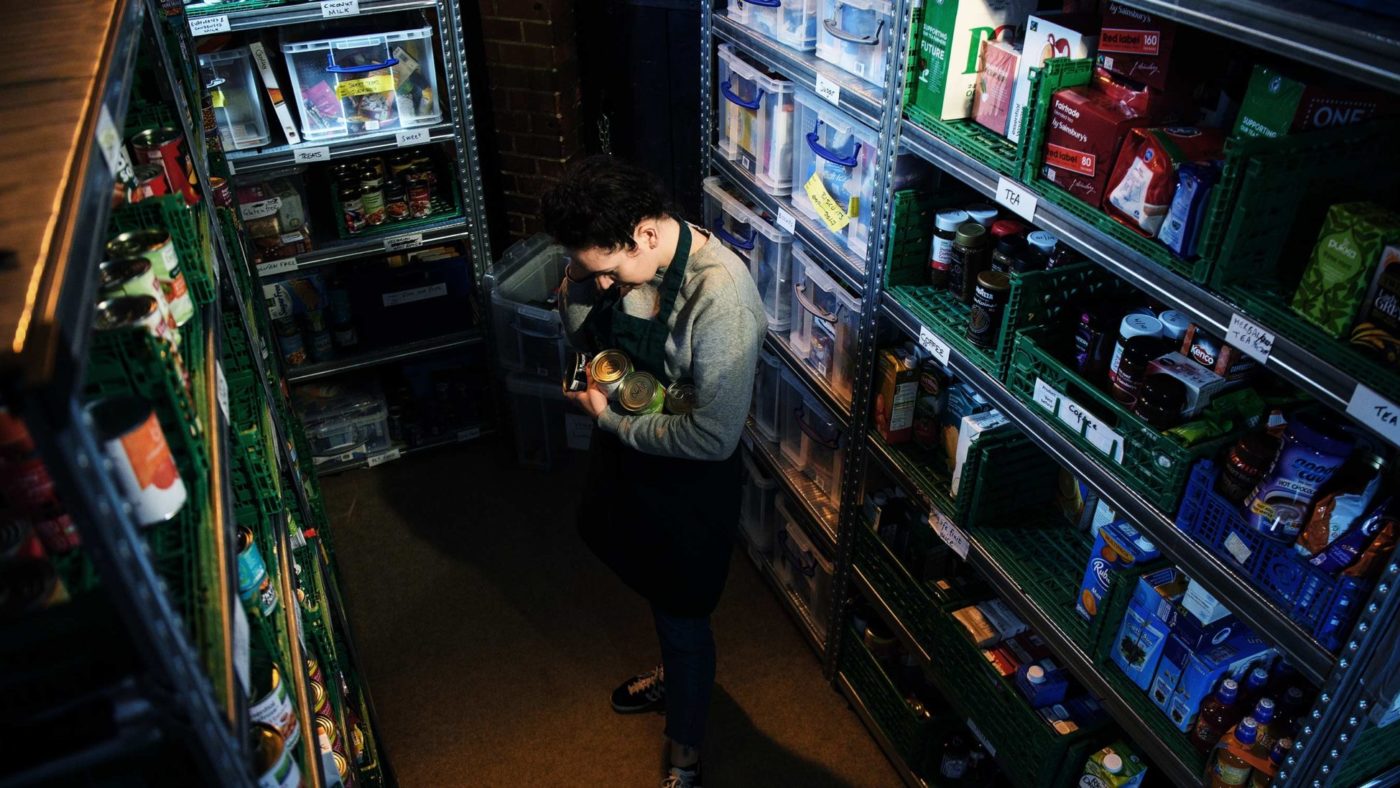This morning’s report on food security from the Environmental Audit Committee offers yet more grist to the mill for those convinced the UK is verging on a Dickensian dystopia.
The MPs, spearheaded by committee chair and former Labour frontbencher Mary Creagh, lambast the Government for being insufficiently focused on hunger, specifically not having a strategy in place to meet the UN’s Sustainable Development Goals.
As is usually the case with this kind of report, the committee identifies a variety of problems, including “high and growing levels of obesity”, under-nutrition and high levels of “food insecurity”, defined (also by the UN) as “limited access to food…due to lack of money or other resources”.
The report also takes issue with a lack of measurement, complaining that there is “no single, nationwide Government measure for hunger in the UK”, while accusing ministers of “turning a blind eye” to hunger.
The solutions on offer mainly involve monitoring things, rather than actually tackling their root cause: more targets in Whitehall’s Single Departmental Plans, a new definition of “under-nutrition” (which includes both obesity and malnutrition) and a new ‘Minister for Hunger’ coordinating the Government’s efforts.
Leaving aside the, at times, nakedly partisan tone of the report, both the committee’s conclusions and recommendations both deserve a health degree of scepticism.
For a start the Sustainable Development Goals the committee judges the Government against are both vague and open-ended. They call on states to ensure “safe nutritious food all year round“ and “end all forms of malnutrition”, which would presumably include those who are rich and overweight as well those not getting enough food. These goals appear to be aimed not primarily at industrialised countries with a secure food supply, but developing ones — hence the tell-tale word “development”.
This brings us to a related point – the way in which both the language and statistics about UK poverty can sometimes be misleadingly negative, particularly where the UN Is involved. Witness the organisation sending its Rapporteur on Extreme Poverty, Philip Alston, to this country on a two-week fact-finding trip, even though there is next to none of what the UN describes as “extreme poverty” in the UK.
The debate is not helped by imprecise statistics. A widely used benchmark for poverty, for instance, is someone being on 60 per cent of the median income — that is clearly a measure not of poverty, but of inequality. After all, using this definition there is less poverty if richer people’s incomes fall, even if there are no change in the circumstances of the poor. Indeed, the level of absolute poverty in the UK has fallen since 2010. Equally, as James Heywood noted on these pages not long ago, the claim that “in work poverty has risen faster than employment” falls apart under a bit of scrutiny.
Today’s EAC report includes a graph that puts the UK top of all EU countries in terms of food insecurity. One ought not to dismiss this out of hand, but it seems improbable, given the relative wealth of the UK compared to member states such as Romania or Bulgaria, not to mention the Greeks, who are only tentatively emerging from their epic economic crisis.
None of this is to deny the existence of problems in Britain. But it’s hard to see how exaggerating the scale of them does much good to our national discourse. Nor should we be accused of ignoring home-grown problems simply by pointing out that they are not comparable to the worst cases of deprivation across the world.
Above all, food insecurity must be seen as part of a broader cost of living problem.
The benefits system is part of the problem. Universal Credit is a fundamentally good idea, but its effectiveness has been undermined by a combination of funding cuts and roll-out problems that have badly dented confidence.
This morning’s report mentions UC on several occasions, pointing out that problems with benefits are often at the root of problems with food security. It’s unclear how another appointed official will solve these problems. In fact, government action is at the heart of many of the problems cited by the committee.
Take tax — while the Tories used to make great play of “taking people out of tax” by raising the income tax personal allowance, it always felt a slightly misleading boast when the lowest paid were still paying national insurance on their earnings.
As a recent CPS report argued, much could be achieved by getting rid of national insurance and income tax for the first £12,000 of earnings. That change would deliver an estimated boost of some £459 to anyone earning more than £12,000 a year, while taking 2.4m people out of tax altogether.
The effectiveness of this kind of reform will only be limited if we fail to address the biggest drain on people’s incomes – housing. After all, it’s not the cost of food that has rocketed in the past couple of decades, but the cost of putting a roof over our heads. Rather than treating the housing crisis’s many symptoms, the government should take action at the root of the problem. The solutions are many and varied, but the bottom line is that Britain has a complex, costly and restrictive planning system that is no longer fit for purpose.
It would be unfair to criticise the Environmental Audit Committee for not offering more thoughts on the housing crisis, but discussing deprivation, incomes and the cost of living while barely mentioning housing means you are ignoring an important part of the problem.
There is, however, a bigger problem with today’s report and the way many think about poverty and inequality in Britain: an assumption that every problem is the result of a lack of state action. When it comes to the cost of living – one of the core issues behind food insecurity – the state is often the problem, not the solution.


